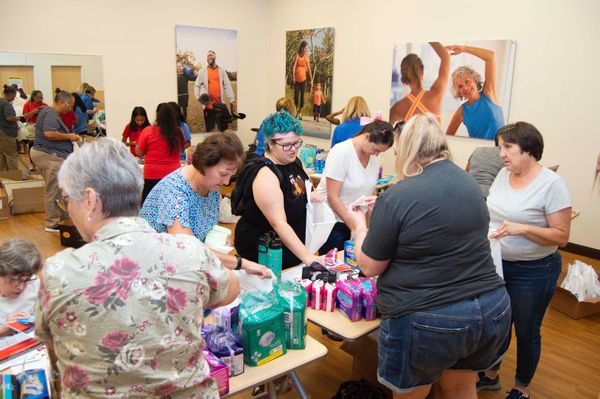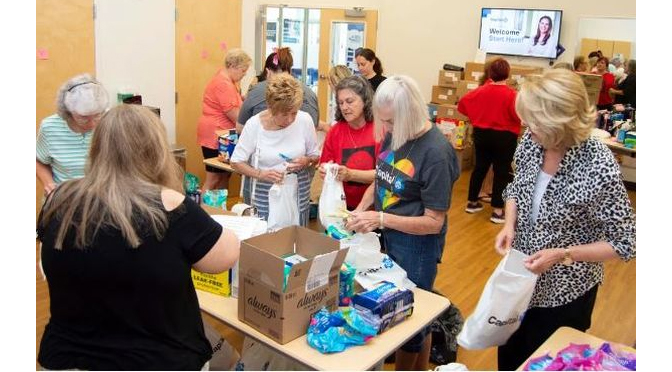By Capital Blue Cross – THINK (Trusted Health Information, News, and Knowledge) is a community publication of Capital Blue Cross. Our mission is to provide education, resources, and news on the latest health and insurance issues.
For millions of Americans, menstrual products like tampons or pads are financially out of reach, leading them to miss work or school, endure shame and anxiety, and put their health at risk.
It’s called “period poverty” – and it can have dire consequences.
A lack of access to hygienic menstruation products can lead some menstruators to use the same tampon or pad for too long or even resort to makeshift methods to control their periods, like tissue or toilet paper. Poor menstrual hygiene can lead to vaginal or urinary tract infections, pelvic inflammatory disease, reproductive health problems, and life-threatening toxic shock syndrome, according to the National Institutes for Health.
The ripple effects of period poverty can have societal impacts too, leading to missed days of school or work, which can undermine opportunities and feed the cycle of poverty. It also can contribute to mental health issues like anxiety or depression.
Removing the “Element of Shame”
“There are so many layers to this issue,” explains Registered Nurse Megan Swope. “Menstruation really should be seen as a superpower for women – it’s what enables us to bring life into this world – but it’s one of those things that historically has been kind of shrouded in embarrassment. … You were told it’s something you don’t talk about.”
That taboo mindset, however, is fueling a public health crisis that can be solved if menstrual products are simply made more accessible and affordable, and if we remove what Swope calls a persistent “element of shame.”
She is working to do both through the Period Project Harrisburg, a nonprofit Swope started in 2022 to distribute period products to those who cannot readily access or afford them.
Volunteers assemble “period packs” – each containing a month’s supply of pads, tampons, and pantyliners along with educational materials – that are distributed to schools, shelters, food pantries, and health clinics. The Period Project Harrisburg has so far collected and distributed menstrual supplies to help about 2,500 people this year across Central Pennsylvania.

How Capital Blue Cross is Helping
In August, about two dozen volunteers gathered at the Capital Blue Cross Connect health and wellness center in Enola to assemble 1,000 period packs that were distributed to organizations including a health clinic, school nurses, shelters, and food pantries.
“We were thrilled to be able to help the Period Project do this great work for the community,” said Stacey Clark, who manages the Capital Blue Cross Connect center. “Capital Blue Cross has a deep commitment to community health and wellness issues, and our employees were eager to volunteer their time to help assemble these packages.”
Swope plans to distribute about 15,000 period packs this year and expand the Period Project Harrisburg’s reach in the years ahead. Ultimately, however, she defines success as no longer having to operate the nonprofit at all.
“My goal is to put an end to period poverty in our community so there’s no longer a need for us to do what we do,” Swope said. “I’m hoping we become irrelevant. Until then, we will be here for Harrisburg.”
You can find more useful articles at https://thinkcapitalbluecross.com/
Information provided to TVL by:
JERRY REIMENSCHNEIDER
Senior Public Relations Specialist | Brand & Market Strategy
https://www.capbluecross.com/





